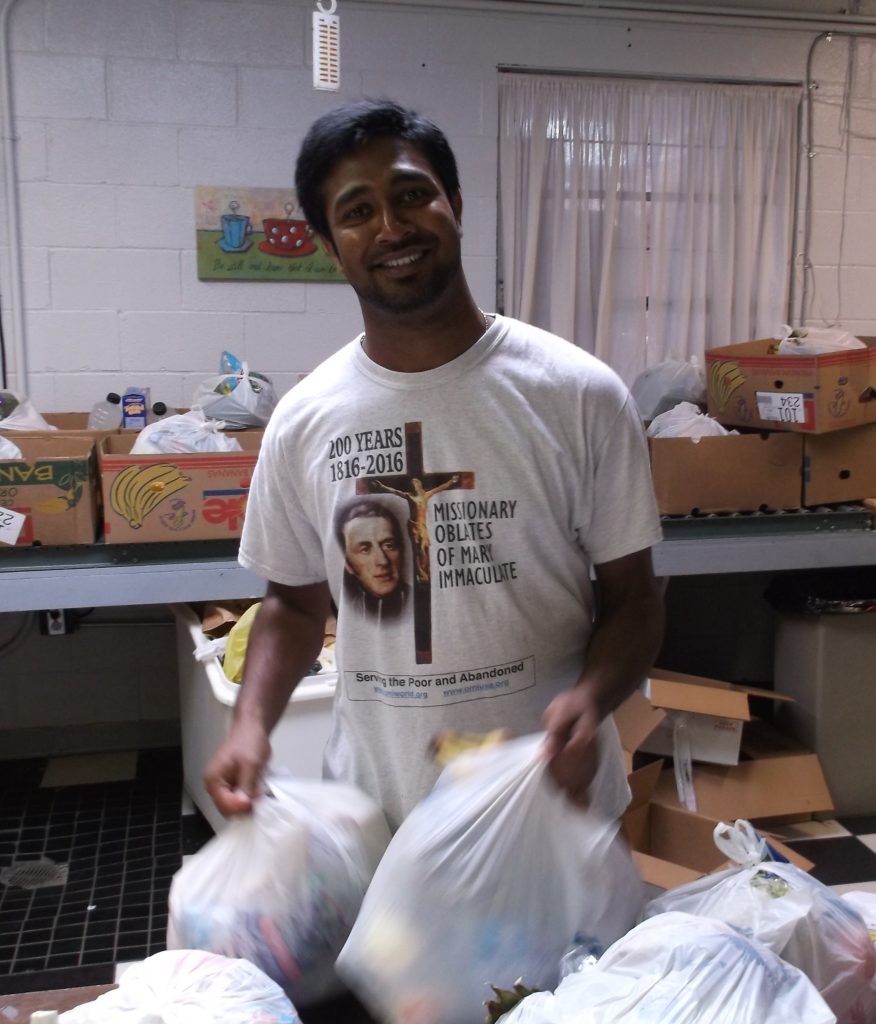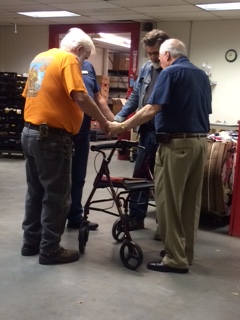For more than four years, Community Hope Center (CHC) has been on a journey to re-imagine the way they operate their ministry. When Paul Militzer, Executive Director, and Denise Ukena, Assistant Executive Director, began working with CHC in 2014, they approached the board of directors with a powerful question: “Is Community Hope Center fulfilling the mission statement in its Constitution? The answer: Not completely.” With that response, and a desire to truly transform lives, Paul and Denise set out to examine the work and impact of CHC. In doing so, they have been able to identify what is working, what is not, and develop a clear mission and vision that more closely align with their ministry goals.
What does CHC’s current ministry model look like?
- It currently operates on weekday mornings.
- Guests can visit twice a month.
- There are no set appointments, walk-ins only.
- Guests have the opportunity to receive food, clothing, and housewares.
- Spiritual care volunteers are available for praying and/or story-sharing/connecting.
What’s working well?
- CHC has a very committed volunteer base.
- The process is very efficient – people can move through quickly.
- The pantry serves 70-80 families per day!
- Guests have access to prayer and human interaction.
What could be improved?
- The current model is very traditional and transactional – meeting immediate needs, but not necessarily transforming lives. The same people keep coming, some of them for many years and with little life change.
- Guests need support in a number of other ways that aren’t currently offered or addressed, like mental health, transportation, etc.
- Without a schedule of when guests visit and which volunteers they work with, it is difficult to build relationships.
- Offering only daytime, weekday hours poses a challenge for many working individuals or those waiting for others to drive them.
- There is a desire for guests to also engage in the work, not just be recipients of the service.
- Volunteers are often left saying “I wish there was more we could do to really help,” but that’s not really possible with the current model and systems.
Over the last few years, Paul and Denise have “continued to learn about the importance of having clear outcomes and measuring progress, and felt the nudging of the Holy Spirit to ‘go deeper’ and do more with guests.” They interviewed their board of directors and volunteers, worked closely with Lutheran Foundation of St. Louis and Send Me St. Louis, educated themselves in best practices and the concepts of Toxic Charity, and sought board approval every step of the way. This path, though neither quick, nor easy, has brought them to a place where a more transformational approach to ministry is now possible! For a detailed timeline of their process, click here.
Advice from Denise Ukena for those looking to embark on a similar journey to more impactful ministry:
- Don’t be afraid to tell people what you’re thinking or dreaming, and to ask the bigger questions of “What if…?” If you truly believe God is directing you, then there is no need to be scared. Remember, it’s not your organization; it’s God’s!
- Find others who can think through the process with you.
- Maintain a learning posture – research best practices and approaches, gain insight from those who’ve done a similar shift within their own organizations, reach out to Send Me St. Louis for guidance.
- Get clear and focused on who you are as an organization and what IMPACT you want to make first – this is the only way to truly assess whether or not your programs, systems, etc. work and identify what changes or improvements need to be made to achieve the greatest impact. This step might take a while, but it will be your guide for the implementation process!



